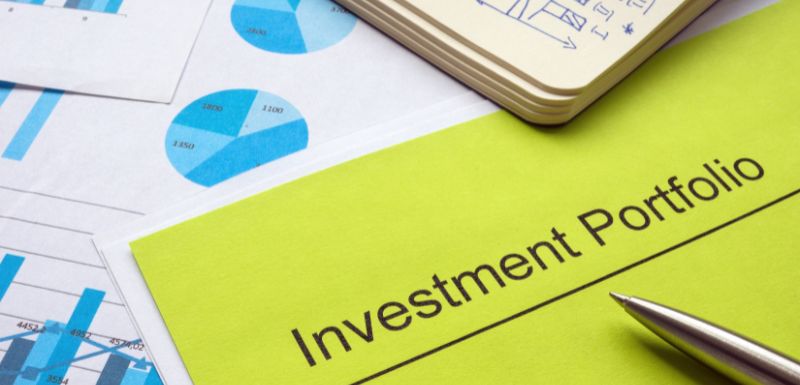Five Traits of Smart Investors

It goes without saying that the COVID 19 crisis has tested the mettle of investors like never before. From the heady highs of February to the dark depths of March, and to the sharp recovery that has followed since, market movements of 2020 have been truly unprecedented. However, smart investors continue to remain relatively unscathed through all this madness, while the less smart ones have seen their portfolios getting pulverized. Do you want to be a smart investor too? Start off by cultivating these five traits that characterize them.
Smart Investor Trait #1: Don’t obsess over your portfolio
Someone wisely observed that a watched pot never boils. They may well have been talking about investing! While smart investors do check their portfolios periodically and make a sincere effort to stay on top of things, they also understand that obsessing over their investments will only serve to incite a host of behavioural biases in them that will work to their long-term detriment. In short, smart investors review their investments periodically and then sit tight until something changes materially. They do not count their daily losses and profits.
Smart Investor Trait #2: Be goal focused, not returns focused
Smart Investors seldom invest in an ad-hoc manner. They recognize money for what it is – that is, a means to an end. Resultantly, their portfolios tend to be segregated neatly into goal-based buckets. Long term moneys being saved for for retirement automatically flow into higher risk funds, whereas emergency funds get set aside into safer, more liquid investments. They understand that returns fluctuate, and so they measure their success by the more robust yardstick of percentage of goal achievement instead. Retirement corpus down 30% due to COVID? So, what – there are still 25 long years left to cover lost ground!
Smart Investor Trait #3: Understand risks
Smart investors never commit money into an investment without a total awareness of the risks (and potential rewards) involved. By doing so, they assume full responsibility for the fluctuations that may ensue during the investment life cycle. Instead of turning a blind eye to risks, they study how a prospective investment has fluctuated previously during good times and bad before deciding whether it fits in with their objectives as well as their bounds of risk tolerance. And once they do – they stay committed it through the ups and downs that follow, without breaking into a sweat every time markets fluctuate.
Smart Investor Trait #4: Follow a “Core & Satellite” approach
A “core and satellite” strategy is a proven strategy that smart investors have long employed. It entails investing the bulk of one’s assets into long-term and relatively passive assets, while setting aside the rest to play sectors and themes that may outperform the rest of the pack in the medium term. By doing this, smart investors effectively contain portfolio risks while cashing in on opportunistic trends in a controlled manner. Importantly, smart investors draw the line between their core assets and satellite plays with unflinching discipline.
Smart Investor Trait #5: Avoid “Heropanti”!
While heroics are fantastic for Bollywood movies, they simply do not work well in the investment world! Buying into every dip, exiting opportunistically at every bounce and getting back in swiftly at the next correction – these are just fantasy moves that sound great in your head. In reality, such mercurial actions will leave your portfolio bruised and battered. Smart Investors understand that successful investing is more like watching grass grow or watching paint dry. They mentally prepare themselves for a marathon, while leaving the sprints for the novices!
The support of a qualified Financial Advisor can make you a smarter investor! To get started on your journey towards smart investing, get in touch with us today.
Your Investing Experts
Relevant Articles
Essential Asset Allocation Strategies for a Balanced Investment Portfolio
In 2024 (as of June 2024), the Nifty 50 Index has given a return of 28.12%. During the same period, gold has gone up by 23.56% and fixed income has given a return of 7.27%. In the calendar year 2022, gold was the top-performing asset class, whereas in 2015, fixed income was the top-performing asset class. So, different asset classes take turns to outperform each other year after year. Hence when it comes to managing existing wealth, most investors follow asset allocation by building a diversified investment portfolio. In this article, we will understand what asset allocation is, asset allocation strategies, and how to use them to build a balanced investment portfolio.
Top Tips for Successful Investment Portfolio Management
We have all heard the well-known phrase: “Don’t put all your eggs in one basket”. The phrase applies to many aspects of life, including investments. If you put all your money in a single asset class or security, and its value falls sharply or goes bust, you will incur significant losses or lose all your money. Hence, you need to build a diversified investment portfolio and manage it well. In this article, we will understand what is investment portfolio management, how to build and manage an investment portfolio.
Portfolio Rebalancing: What Is It and How to Do It
As of August 2024, the stock markets are trading near all-time high levels. In the last one year (as of 31st July 2024), the Nifty 50 Index has risen 26.31%. The Nifty Midcap 150 Index, with 54.60% returns, and the Nifty Smallcap 250 Index, with 58.06% returns, have done even better. During the same period, fixed income has been steady, with most debt instruments giving 7-9% returns. As a result, an investor's asset allocation would get skewed in favour of equities. Hence, the investor needs to do portfolio rebalancing. In this article, we will understand what portfolio rebalancing is, why, when, and how you should do it.
.png)
.jpg)

